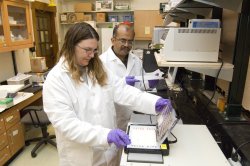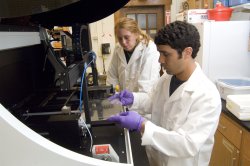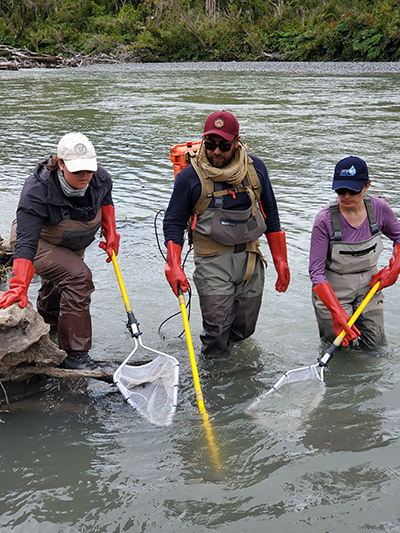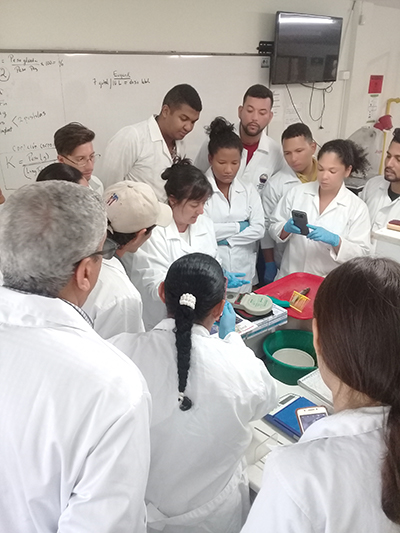Aquatic Molecular Biology and Analytical Lab

The Aquatic Molecular Biology and Analytical Lab, located on the West Lafayette Campus in the Forestry Building rooms 104 and 105 (FORS 104/105), has 1500 square feet and houses the following equipment: 2-Dimensional Gel Electrophoresis (gel casting and running); Gel imaging and robotic spot picker; Lipid extraction; Centrifuges; Vacuum Centrifuge; Solid Phase Extraction, GC; HPLC; Ultra-low Temperature Freezer; Vet-Scan Clinical Analyzer; Microplate Reader; Incubators; Ultrapure Water Purification.
Ecotoxicology Group
The ecotoxicology group, under the direction of Dr. Marisol Sepulveda, studies the sublethal effects of contaminants and other environmental stressors on the physiology of fish and wildlife. It uses molecular tools including genomics, proteomics, and metabolomics, for the development of biomarkers of exposure and effects to environmental contaminants. It also studies bioaccumulation rates and factors affecting bioavailability of contaminants in biota. Currently, there are five graduate students, two undergraduate students, and one post-doctoral research associate working on research in the lab.
Aquaculture and Aquaculture Nutrition Group
The aquaculture and aquaculture nutrition group, under the direction of Dr. Paul Brown, is interested in nutritional requirements, nutrient metabolism and the evaluation of feedstuffs, in cultured aquatic animals. Current research is focused on the use of proteomic and metabolomic approaches in aquatic animal nutrition research. Currently, there are three graduate students, one undergraduate student, and one post-doctoral research associate working on research in the lab.
Research faculty


Lab Manager & More About Our Research
Matthew Hamilton
Fisheries & Aquatics Lab Manager
195 Marsteller Street
W. Lafayette IN 47906
Phone: 765.496.6266
Email: hamiltmt@purdue.edu
Learn about our nine Research Areas and meet our world-class faculty members.
FNR research centers seek to support and enhance the research and partnership enterprise at Purdue University. The centers are valued and encouraged as they create a venue for faculty to come together to pursue common goals. Forestry and Natural Resources faculty and staff are involved in six centers at the University.
The Department of Forestry and Natural Resources maintains an impressive collection of state-of-the-art research and education facilities. These labs, green houses, and educational facilities are a fundamental component that enables our faculty and students to learn, make new discoveries, and engage our clients in using these discoveries to sustain our nation’s ecosystems and natural resources.
